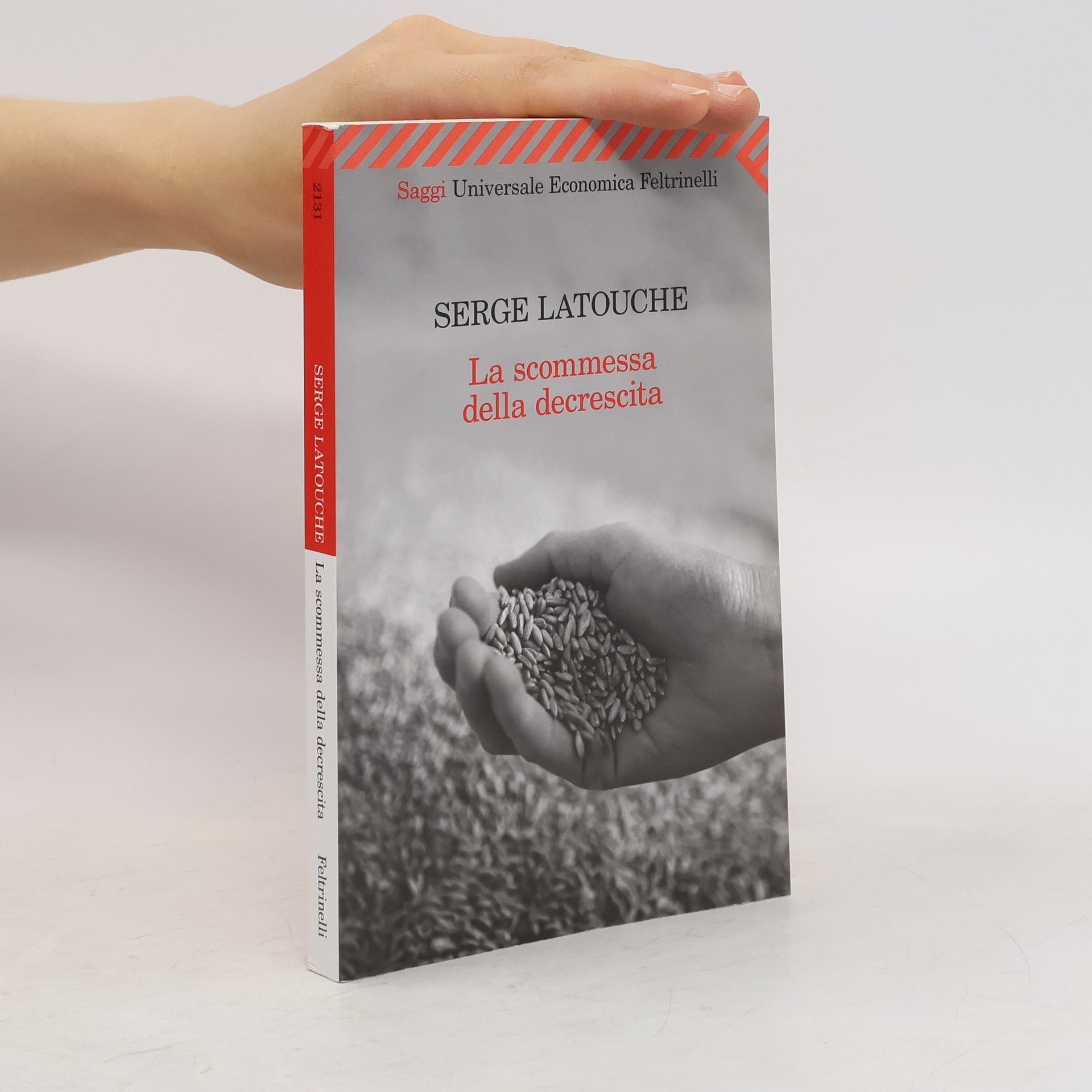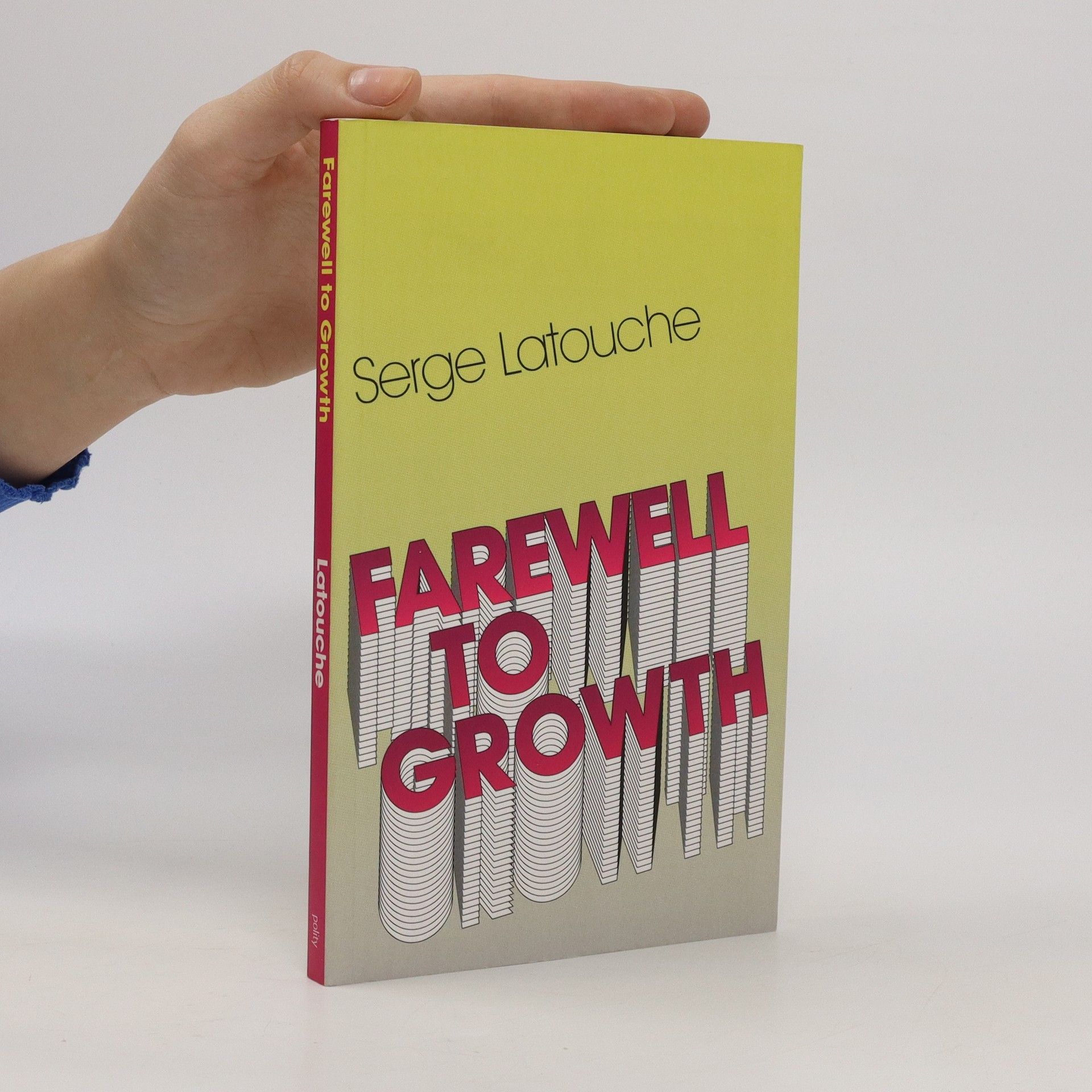Die Allmacht des Ökonomischen geht einher mit einer Vernunft, die im Streben nach möglichst unbegrenztem Wachstum und maximaler Effizienz auf reine Rationalisierung, Vereinheitlichung und Organisation ausgerichtet ist. Deren negative Aspekte wachsen sich zu chaotischen Exzessen aus, die Alltag geworden sind: BSE und andere Tierseuchen, Brandrodung, riesige vom Erdöl zerstörte Gebiete, monströse Verkehrsszenarien sind Manifestationen einer Vernunft, die zum Wahn geworden ist. Wie angesichts dessen nicht irrationalen Reflexen und endzeitlichen Ängsten verfallen, sondern zu einer anderen Vernunft, einer Weisheit ökonomischen Handelns finden, aus der ein Gegenmodell erwachsen könnte? Der französische Sozial- und Wirtschaftswissenschaftler Serge Latouche findet die Strategien einer anderen ökonomischen Vernunft in einer informellen Ökonomie, deren Basis nicht Markt und Gewinn sind, sondern vielmehr der Tausch und die Gabe, wo der Akt des Aushandelns, das Gespräch, das Palaver im Mittelpunkt stehen. Zentral ist dabei immer wieder die Begegnung mit dem Anderen der Globalisierung: den lokalen Ökonomien in Afrika, China und Indien. Im Rückgriff auf eine Ethik der Gabe in der Nachfolge von Marcel Mauss und auf eine »mediterrane« Klugheit und Vorsicht im Zeichen des Sozialen hält Latouche ein wortgewaltiges und überzeugendes Plädoyer für das ökonomisch »Irrationale«.
Serge Latouche Bücher
Serge Latouche ist ein französischer Wirtschaftsprofessor, der für seine Kritik an der ökonomischen Orthodoxie und der Konsumgesellschaft bekannt ist. Er ist ein führender Verfechter der „Degrowth“-Theorie, die Konzepte der nachhaltigen Entwicklung und ökonomischen Effizienz in Frage stellt. Latouche unterzieht den Ökonomismus und Utilitarismus in den Sozialwissenschaften einer kritischen Prüfung und bietet eine alternative Perspektive auf die Nord-Süd-Beziehungen. Seine Arbeit fordert eine grundlegende Neubewertung unserer aktuellen ökonomischen und gesellschaftlichen Paradigmen.







Most of us who live in the North and the West consume far too much – too much meat, too much fat, too much sugar, too much salt. We are more likely to put on too much weight than to go hungry. We live in a society that is heading for a crash. We are aware of what is happening and yet we refuse to take it fully into account. Above all we refuse to address the issue that lies at the heart of our problems – namely, the fact that our societies are based on an economy whose only goal is growth for growth’s sake. Serge Latouche argues that we need to rethink from the very foundations the idea that our societies should be based on growth. He offers a radical alternative – a society of ‘de-growth’. De-growth is not the same thing as negative growth. We should be talking about ‘a-growth’, in the sense in which we speak of ‘a-theism’. And we do indeed have to abandon a faith or religion – that of the economy, progress and development—and reject the irrational and quasi-idolatrous cult of growth for growth’s sake. While many realize that that the never-ending pursuit of growth is incompatible with a finite planet, we have yet to come to terms with the implications of this – the need to produce less and consume less. But if we do not change course, we are heading for an ecological and human disaster. There is still time to imagine, quite calmly, a system based upon a different logic, and to plan for a ‘de-growth society’.
Růst HDP je božstvo. Euro-americká civilizace je dennodenně před hrubým domácím produktem v pokleku. Kniha francouzského profesora Serge Latouche je jedním z pokusů ukázat, že tímto poklusem za růstem Růstu hrozí lidské společnosti ekonomická a sociální past, ale že se dá o světě kolem nás přemýšlet jinak. Že se dokonce dá - a dokonce téměř ihned musí – něco pro nástup růstem nevystresované společnosti dělat. Podle Latoucha décroissance (de-growth) neznamená negativní růst. Takové chápání je jen dokladem uvěznění myšlení o společnosti v termínech růstu a jeho opaku. Kontrakce hospodářství bez jakýchkoliv doprovodných opatření vede k chaosu, nezaměstnanosti a zásadnímu narušení zdravotních, sociálních, vzdělávacích a i environmentálních standardů. Proto je třeba přijmout de-growth nebo a-growth ve smyslu a-teizmu a opustit tuto víru v pokrok skrze produkci a spotřebu. Cílem de-growth je "vybudovat společnost, v níž můžeme lépe žít a zároveň méně pracovat a spotřebovávat".
La scommessa della decrescita
- 215 Seiten
- 8 Lesestunden
Il termine “decrescita” suona come una scommessa o una provocazione, nonostante la generale consapevolezza dell’incompatibilità di una crescita infinita in un pianeta dalle risorse limitate. L’oggetto di questo libro è incentrato sulla necessità di un cambiamento radicale. La scelta volontaria di una società che decresce è una scommessa che vale la pena di essere tentata per evitare un contraccolpo brutale e drammatico. Bisogna ripensare la società inventando un’altra logica sociale. Ma qui si pone la questione più difficile: come costruire una società sostenibile, in particolare nel Sud del mondo? Bisogna quindi esplicitare i diversi momenti per poter raggiungere questo obiettivo: cambiare valori e concetti, mutare le strutture, rilocalizzare l’economia e la vita, rivedere nel profondo i nostri modi di uso dei prodotti, rispondere alla sfida dei paesi del Sud. Infine, bisogna garantire tramite misure appropriate la transizione dal nostro modello incentrato sulla crescita a una Società della decrescita. Tutti temi questi che già a vario titolo compaiono nell’agenda politica di molti paesi europei, tra cui la Francia e la Germania, e che anche in Italia cominciano a definirsi in un tutto organico. Questo libro ne è il manifesto teorico.
Pierre Kropotkine et l'économie par l'entraide
- 132 Seiten
- 5 Lesestunden
Pourquoi l'entraide est-elle notre unique chance de survie ? Géographe, naturaliste, explorateur, militant et théoricien du communisme anarchiste, Pierre Kropotkine (1842-1921) s'est insurgé contre la vision d'une société régie par la compétition et la concurrence. Réfutant les théories darwiniennes, il montre que la coopération et la solidarité sont des facteurs essentiels de la survie des espèces. Il trace les contours d'une économie par l'entraide qui garantit la satisfaction des besoins, évite le gaspillage et engendre une organisation collective maîtrisable par les individus. Renaud Garcia rappelle que les propositions du «princes des anarchistes» restent des pistes d'actualités pour contrer l'idéologie compétitive et le productivisme.
Universale economica. Saggi - 8488: La scommessa della decrescita
- 224 Seiten
- 8 Lesestunden
Professeur emerite de l Universite de Paris Sud (Orsay), Serge Latouche est notamment specialiste des rapports Nord-Sud et d une reflexion sur les principaux concepts economiques. Il est l un des animateurs du MAUSS (Mouvement anti-utilitaire dans les sciences sociales). Plus recemment, il a participe a la fondation de la revue ENTROPIA, revue d etude theorique et politique de la decroissance .Caricaturee par ses adversaires en une regression economique et sociale radicale, la decroissance se veut au contraire une perspective d avenir pour y echapper: celle d un refus du gaspillage des ressources naturelles, d une prise en compte de leurs limites qui rendent d ores et deja impossible la generalisation a toute la planete du mode de vie occidental. Aussi exige-t-elle un changement radical de paradigme, ce que l auteur appelle une societe de decroissance. Une telle societe donnerait un autre sens a la production et a la consommation, reorientant les arbitrages politiques, relocalisant l economie, limitant les echanges dispendieux mais stimulant la convivialite. Cet appel a la decroissance, qui rencontre de nombreux echos depuis que la crise planetaire a eclate et que les menaces sur l environnement se precisent, est aussi un appel a l imagination."
Breve trattato sulla decrescita serena e Come sopravvivere allo sviluppo
- 199 Seiten
- 7 Lesestunden
«Non possiamo più sopportare né i nostri vizi né i loro rimedi». Questa affermazione di Tito Livio risuona con forza nella crisi planetaria attuale, caratterizzata dall’insostenibilità di pratiche dannose e soluzioni illusorie. Serge Latouche emerge come un analista incisivo, pronto a smascherare l'impostura economica nei suoi molteplici aspetti. Egli individua il nostro vizio principale nell'eccesso: produzione, consumo, obsolescenza, scarto, disuguaglianza, disoccupazione, sfruttamento delle risorse naturali e inquinamento. Non si tratta semplicemente di correggere un modello di sviluppo malato, ma di riconoscere che la nozione stessa di crescita è tossica, sia nel capitalismo globalizzato che nel socialismo reale. Dopo il fallimento delle politiche di sviluppo, anche in versioni "sostenibili", Latouche propone un’unica alternativa: l’utopia concreta di una società basata sulla decrescita. Questa visione mira a ridurre l'impatto ecologico, fermare la predazione delle risorse e promuovere relazioni di partenariato con il Sud del mondo, rivitalizzando la convivialità. L'idea di una decrescita serena non è irrealizzabile, come dimostrano le opere di Latouche, che evidenziano come l'eccesso di benessere sia inestricabilmente legato all'eccesso di malessere.

